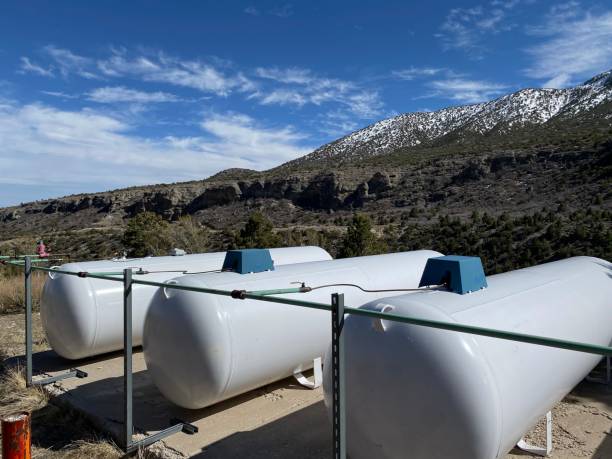The Growing Influence of Western States on Current Energy Policies

In the realm of energy regulations, developments in California often have a ripple effect that extends across the country. The state’s unique characteristics, such as its expansive size, diverse demographics, cutting-edge technology, and significant government sector, position it at the forefront of innovative energy policies. As stakeholders in the energy sector, the rest of the nation must remain vigilant and informed.
Within the propane industry, a contentious battle is currently underway, fueled by proponents who believe that electricity is the sole solution for achieving a cleaner energy future. Tucker Perkins, President and CEO of the Propane Education & Research Council, dismisses this narrative as “absurd.” Addressing a room full of propane marketers and industry professionals at the Western Propane Trade Show & Convention in Palm Springs, California, Perkins humorously remarked, “Some people think electricity is magically produced by honeybees and walnuts, with no consequences.”
It is evident that the repercussions of electrification are often overlooked. The upstream emissions generated by electricity production and the environmental impact of mining minerals are frequently disregarded. Perkins emphasized the urgent need to regain public opinion, stating that “we are currently losing the battle.”
This shift in public opinion directly influences policymakers at the local and state levels, who are increasingly advocating gas bans and the promotion of electrification, particularly in residential and commercial construction projects.
The push for electrification extends beyond California, with states such as Washington, Colorado, Massachusetts, and New York following suit. In California, the industry faces additional challenges, including efforts by the California Air Resources Board to ban internal combustion engine forklifts. At the federal level, there are looming threats to gas stoves, furnaces, and water heaters.
Finding Solutions
How can the propane industry counter the electrification movement in its traditionally thriving markets while preserving energy choices for consumers? One approach is relying on industry leaders like Colin Sueyres in the West and Leslie Anderson in New England, in addition to many others.
Steve Ahrens, representing the Missouri and Arkansas propane gas associations during his LP Gas Hall of Fame induction speech, recognized the pivotal role played by these state association peers in developing messaging and strategies to combat the electrification trend. Ahrens underscored the significance of leveraging their collective knowledge and efforts as a source of inspiration for industry professionals across the nation.
Colin Sueyres, who assumed the role of President and CEO of the Western Propane Gas Association a year ago, is determined to join forces with his board members and colleagues in the industry. Together, they are committed to providing Californians with a clean and affordable energy source for the future. Sueyres acknowledges the abundance of expertise and dedication among these newer state executives, emphasizing their united front and collaborative spirit in supporting one another’s success.
Returning to the Palm Springs auditorium, Tucker Perkins shifted into a motivational tone, discussing growth goals in terms of propane gallons and highlighting emerging markets such as power generation, transportation, and material handling. He urged marketers to share their stories and to champion the advantages of propane. Perkins firmly believes that the battle will be won “from the bottom up” through grassroots efforts rather than relying solely on national politicians.
Sometimes, Perkins questions whether he is facing an uphill battle. However, he quickly remembers the identity he is working tirelessly to protect. “We are propane people,” he asserts. “Our allegiance lies with propane, not natural gas or electric utilities. We must persevere through this challenging period.” With confidence, Perkins concludes, “Let me assure you, the tide is turning.”










